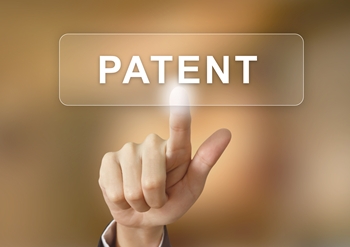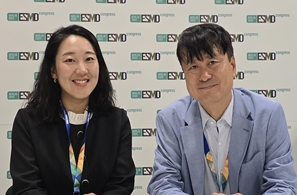- KIPO, IPTAB to introduce ‘advance invalidation notice’
- by Hwang, byoung woo | translator Alice Kang | Sep 9, 2025 06:13am

Conversely, the Korean Research-based Pharmaceutical Industry Association (KPBMA), led by multinational pharmaceutical companies, welcomes the change, viewing it as a positive step toward strengthening patent holders' defense rights.
Amid these conflicting views, IPTAB recently held an industry meeting to hear the pharmaceutical sector's concerns and is considering supplementary measures, including new exception clauses. Notably, it is considering exceptions for the link between drug approvals and patents.
Patent trials to institutionalize additional correction opportunities, pharmaceutical industry on high alert
In April, KIPO and IPTAB introduced improvements to the ‘advance invalidation notice’ system. This procedure informs parties in advance of the final decision outcome, aiming to strengthen patent holders' defense rights by granting them one more opportunity for correction (patent amendment).
By ensuring patent holders sufficient time to defend themselves during the trial process, the reliability and stability of patents will be enhanced.
KIPO emphasized that this change will “contribute to creating ‘premium patents’ that enjoy broad exclusive rights for high-value innovative technologies, with clear rights that are also effective against third parties.”
In current practice, when a patent is ruled invalid, the patent holder has to separately file a lawsuit to overturn the decision or request a correction trial afterward. However, under the new system, if the trial division finds grounds to invalidate the patent, it will not immediately finalize the decision but will instead issue a prior notice stating it ‘will issue an invalidation decision’.
Upon receiving this notice, the patent holder gains an additional opportunity to supplement the patent through a correction request within a specified period. In essence, it offers one more chance to save the patent.
This is interpreted as part of the recently emphasized policy to foster premium patents, an effort to protect high-quality patents and support the technological competitiveness of domestic companies.
The IPTAB also stated it will enhance the burden of proof for petitioners and improve procedural aspects like strict adherence to evidence submission deadlines, aiming to operate patent disputes more transparently and predictably.
Domestic pharmaceutical companies express concern, “Generic launch delays... may be disadvantageous when obtaining first patent exclusivity ”
The system for notifying patent invalidation decisions is not going to be implemented by the industry sector. However, while the domestic pharmaceutical industry agrees with the system's intent, it maintains that the unique characteristics of the pharmaceutical sector must be considered.
Particularly, it is pointed out that if this system interacts with the drug approval-patent linkage system, it could cause critical delays for domestic pharmaceutical companies (generic manufacturers).
Under the current approval-patent linkage system, the first generic company to successfully challenge a patent is granted a 9-month exclusive marketing authorization right (first generic exclusivity). However, during the patent dispute, the original drug’s company can apply for a sales ban to block the generic's launch for up to 9 months.
If the generic company obtains a favorable ruling, such as patent invalidation, within the 9-month period, the sales ban is immediately lifted, allowing the early launch of generics. However, if no favorable ruling is obtained, the generic company must wait up to 9 months until the ban is lifted.
Domestic firms believe that an advance invalidation notice may critically affect this timing. The original drug’s companies may amend patents at the last moment to avoid invalidation, which could rob generic drug manufacturers of their exclusivity, delay market entry by up to a year, and allow originals to maintain higher drug prices longer.
The head of the patent team at domestic pharmaceutical company A pointed out, “This system could create an unreasonable situation where a generic drug that could have been approved and sold immediately ends up being released a year later. There is also the potential for some original drug companies to exploit this to maintain their drug prices for an extra year.”
Such concerns were raised at an explanatory session held by IPTAB with the Korea Pharmaceutical and Bio-Pharma Manufacturers Association, leading to additional discussions.
Domestic companies also raise concerns about the fairness of the system's application. This is because the advance invalidation notice system is highly likely to effectively favor multinational pharmaceutical companies.
They argue that while domestic pharmaceutical companies hold fewer patents and have grown through generic patent challenges, multinational pharmaceutical companies hold numerous new drug patents in Korea.
An industry insider stated, “While we agree with the intent, if implemented without exception clauses considering the unique characteristics of the pharmaceutical and biotech industry, domestic companies could be at a relative disadvantage.”
Multinational pharmaceutical companies, “Expanded opportunity to amend patents... Expect it to enhance rights protection”
Global pharmaceutical companies are welcoming the move. According to KRPIA, which represents multinational pharmaceutical companies, the introduction of the advance invalidation notice system is viewed as a positive measure that further strengthens the patent holder's right to defend.
KRPIA assessed, “Receiving advance notice of the decision and being granted an additional opportunity for correction can clearly work to the patent holder's advantage.”
Under the current Patent Act, opportunities for amendment requests are limited, mostly only possible during the early stages of invalidation trials (such as when submitting the first response). Consequently, there have been cases where patents were invalidated because amendments couldn't be made when clear issues emerged later in the proceedings.
In such cases, patent holders were forced to bear the cost and time burden of filing a lawsuit to overturn the decision and separately requesting a correction trial. The introduction of the advance notice system would allow them to rectify the situation immediately during the trial stage through additional corrections, making the process more efficient.
A KRPIA official stated, “Even a single opportunity for additional amendments could become a highly significant strategic option for patent holders in their defense. Receiving advance notice of the anticipated decision from the IPTAB to prepare tailored amendments will also substantially aid in protecting rights.”
However, multinational companies also anticipate that the effectiveness will vary depending on the detailed design of the system.
KRPIA stated, “We must await the final system design to judge, but if the structure provides an additional unconditional amendment opportunity after the anticipated decision notice, it is highly likely to positively impact patent holder rights protection. The precise effect can only be assessed upon reviewing the specific details of the system design to be released later.”
IPTAB shares concerns with the pharmaceutical industry...reviews supplementary measures
The IPTAB stated it is discussing the creation of new exception clauses as a supplementary measure to address concerns from the domestic pharmaceutical industry.
In response to Dailypharm's inquiry regarding this matter, the IPTAB’s Adjudication Policy Division stated, “We have internally discussed measures to provide exceptions to prevent domestic pharmaceutical companies from suffering disadvantages.”
Specifically, it is reviewing a proviso clause that would allow the omission of the advance notice-and-hearing procedure for invalidation trials related to the Ministry of Food and Drug Safety's approval-patent linkage system.
Given that swift rulings are particularly crucial in pharmaceutical patent disputes, the plan is to allow the trial division to issue a ruling immediately without the notice procedure upon request by interested parties, after assessing the nature of the case.
The IPTAB stated that it plans to explicitly include these details in the upcoming Patent Act amendment.
If such an exception clause is introduced, the procedure for issuing immediate decisions will be maintained in patent disputes that could affect the future launch of generic drugs, as was previously the case.
An IPTAB official emphasized, “We will ensure the intent established by other statutes is not undermined,” stressing that the implementation of the notice system will be harmoniously designed so as not to undermine the principle of concluding trials under the approval-patent linkage system within 9 months.
In practice, the MFDS and the IPTAB have long operated systems like advance trials to harmonize generic drug approvals and patent disputes. This time, they are expected to refine the scope and requirements for applying exceptions through inter-agency consultations.
The IPTAB official added, “We will supplement the system by reflecting field feedback, but we will find a balance point that does not derail the system's implementation itself.”
-

- 0
댓글 운영방식은
댓글은 실명게재와 익명게재 방식이 있으며, 실명은 이름과 아이디가 노출됩니다. 익명은 필명으로 등록 가능하며, 대댓글은 익명으로 등록 가능합니다.
댓글 노출방식은
댓글 명예자문위원(팜-코니언-필기모양 아이콘)으로 위촉된 데일리팜 회원의 댓글은 ‘게시판형 보기’와 ’펼쳐보기형’ 리스트에서 항상 최상단에 노출됩니다. 새로운 댓글을 올리는 일반회원은 ‘게시판형’과 ‘펼쳐보기형’ 모두 팜코니언 회원이 쓴 댓글의 하단에 실시간 노출됩니다.
댓글의 삭제 기준은
다음의 경우 사전 통보없이 삭제하고 아이디 이용정지 또는 영구 가입제한이 될 수도 있습니다.
-
저작권·인격권 등 타인의 권리를 침해하는 경우
상용 프로그램의 등록과 게재, 배포를 안내하는 게시물
타인 또는 제3자의 저작권 및 기타 권리를 침해한 내용을 담은 게시물
-
근거 없는 비방·명예를 훼손하는 게시물
특정 이용자 및 개인에 대한 인신 공격적인 내용의 글 및 직접적인 욕설이 사용된 경우
특정 지역 및 종교간의 감정대립을 조장하는 내용
사실 확인이 안된 소문을 유포 시키는 경우
욕설과 비어, 속어를 담은 내용
정당법 및 공직선거법, 관계 법령에 저촉되는 경우(선관위 요청 시 즉시 삭제)
특정 지역이나 단체를 비하하는 경우
특정인의 명예를 훼손하여 해당인이 삭제를 요청하는 경우
특정인의 개인정보(주민등록번호, 전화, 상세주소 등)를 무단으로 게시하는 경우
타인의 ID 혹은 닉네임을 도용하는 경우
-
게시판 특성상 제한되는 내용
서비스 주제와 맞지 않는 내용의 글을 게재한 경우
동일 내용의 연속 게재 및 여러 기사에 중복 게재한 경우
부분적으로 변경하여 반복 게재하는 경우도 포함
제목과 관련 없는 내용의 게시물, 제목과 본문이 무관한 경우
돈벌기 및 직·간접 상업적 목적의 내용이 포함된 게시물
게시물 읽기 유도 등을 위해 내용과 무관한 제목을 사용한 경우
-
수사기관 등의 공식적인 요청이 있는 경우
-
기타사항
각 서비스의 필요성에 따라 미리 공지한 경우
기타 법률에 저촉되는 정보 게재를 목적으로 할 경우
기타 원만한 운영을 위해 운영자가 필요하다고 판단되는 내용
-
사실 관계 확인 후 삭제
저작권자로부터 허락받지 않은 내용을 무단 게재, 복제, 배포하는 경우
타인의 초상권을 침해하거나 개인정보를 유출하는 경우
당사에 제공한 이용자의 정보가 허위인 경우 (타인의 ID, 비밀번호 도용 등)
※이상의 내용중 일부 사항에 적용될 경우 이용약관 및 관련 법률에 의해 제재를 받으실 수도 있으며, 민·형사상 처벌을 받을 수도 있습니다.
※위에 명시되지 않은 내용이더라도 불법적인 내용으로 판단되거나 데일리팜 서비스에 바람직하지 않다고 판단되는 경우는 선 조치 이후 본 관리 기준을 수정 공시하겠습니다.
※기타 문의 사항은 데일리팜 운영자에게 연락주십시오. 메일 주소는 dailypharm@dailypharm.com입니다.
- [Reporter's View] Transparent info, the key to vaccine trust
- Reporter's view | Son, Hyung Min









